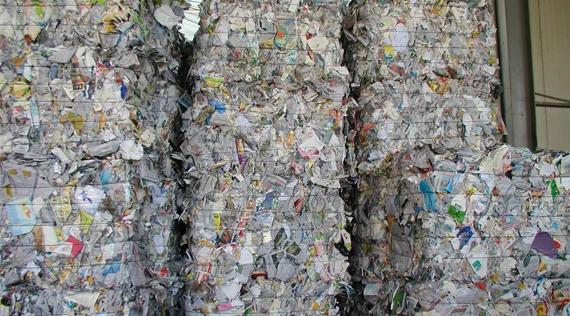
SEATTLE (Scrap Monster): The United Nations Human Rights Council has adopted a resolution that calls for a study on the implications of plastic pollution.
They called for the study during the 56th session held on June 18-July 12.
The council said its advisory committee should prepare “a comprehensive study on the implications of plastic pollution for the full enjoyment of human rights, based on a comprehensive approach that addresses the full life cycle of plastic and to present the study to the Human Rights Council at its 66th session”.
In a historic milestone at the United Nations Environment Assembly in 2022 in Nairobi, UN member states endorsed a resolution to end plastic pollution by forging an internationally legally binding agreement by 2024.
Inger Andersen, the United Nations Environment Programme executive director and the Under Secretary General of the United Nations, praised the move, saying it is good to see this decision adopted.
“Securing an ambitious #PlasticsTreaty at #INC5 talks later this year is critical to protect our health and right to a healthy environment. We have a once in a lifetime opportunity to #BeatPlasticPollution. We cannot waste it,” Andersen said.
The resolution was adopted following concerns raised by Panama, Costa Rica, Ecuador and Peru.
Already, countries are in the process of midwifing the path to a legally binding global instrument to end plastic pollution.
To get an effective treaty by the end of 2024, governments must prioritise agreeing on the key measures that will have the biggest impact on plastic pollution.
On February 27, 2017, Kenya’s Ministry of Environment banned the use of plastic carrier bags through a gazette notice.
The ban came into effect in August of that year.
Today, being found in possession of a plastic bag attracts a fine of between Sh2 million and Sh4 million, or a jail term of between one and two years, or both.
Before 2017, about 100 million plastic bags were used in Kenyan supermarkets every year, with severe consequences to the environment.
But despite the ban, plastics are still on the market.
Nema says banned plastics get into the country through porous borders, as some countries are yet to ban them.
It is suspected the plastics come from Tanzania, Somalia and Uganda.
The authority has faced challenges in Garissa, Mandera, Moyale, Busia, Taita Taveta, Namanga and other border posts.
Nema has been calling for uniformity in the ban.
On June 5, 2019, Kenya also banned single-use plastics on beaches, national parks, forests and conservation areas.
The ban prohibits visitors from carrying single-use plastic water bottles, disposable cups, plates, cutlery and straws into national parks, forests, beaches and conservation areas.
Courtesy: www.the-star.co.ke



| Copper Scrap View All | |
| Alternator | 0.39 (0) |
| #1 Copper Bare Bright | 3.99 (0) |
| Aluminum Scrap View All | |
| 356 Aluminum Wheels (Clean) | 0.74 (0) |
| 6061 Extrusions | 0.64 (0) |
| Steel Scrap View All | |
| #1 Bundle | 360.00 (0) |
| #1 Busheling | 380.00 (0) |
| Electronics Scrap View All | |